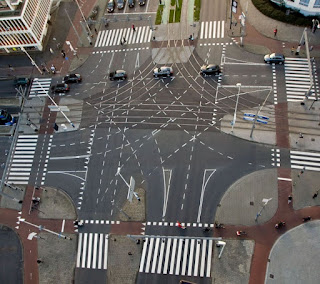Traffic Engineering Consultants : All Details You Need To Know
Traffic engineering is the science of designing, operating and maintaining an effective traffic flow on a road network. This process involves the study and analysis of various factors like Traffic congestion, Parking problems, Travel patterns etc. The aim is to reduce delays, increase safety and improve mobility of people in urban areas with the help of traffic engineering consultants Melbourne.
The Purpose of Traffic Engineering
Traffic engineering is the study of the movement of traffic through a defined area. Traffic engineers work to improve the flow of traffic in an efficient manner. Traffic engineers are responsible for designing roads, intersections and other transportation infrastructure.
Traffic engineering is also known as transportation planning or highway engineering.
How does Traffic Engineering work?
When it comes to the field of traffic engineering, there are many people who are interested in learning more about it. If you are one of them, then you have come to the right place. Here, we will be taking a look at what this field is all about and how it works.
First off, traffic engineering is a science that deals with the analysis, design, construction, operation and maintenance of transportation facilities. In other words: traffic engineers work on roads or any other area where cars move around freely.
The actual job description of these professionals may vary between countries but they often include designing new highways or roads (or improving existing ones) as well as inspecting old ones for possible defects so that they can be fixed before anything bad happens to them like cracks forming in pavement due to too much heat from tire friction over time.
Challenges and Solutions in Traffic Engineering
Traffic engineering is a broad field with many different challenges. Some of the most common challenges include:
- Continuous traffic congestion - this occurs when there are more vehicles on the road than what the road infrastructure was designed for. One way to address this challenge is by adding additional lanes to roads or increasing speed limits.
- Unsafe driving conditions - these can be caused by congested roads, which can lead to accidents and injuries in drivers and pedestrians alike. In some cases, it may also indicate that drivers aren't following the rules of the road correctly (e.g., driving under the influence). In such cases, you should consider increasing enforcement in order to make sure everyone follows safety rules while on public roads.
- Long commute times - this means more time spent traveling from home or work compared with your day-to-day tasks at home or work respectively! If possible, try moving closer so that your commute time is reduced significantly as well as making sure there's enough space available during rush hour so no one has trouble getting into their cars when they need them most
What are the Skills Required for Traffic engineering?
Traffic engineers must be able to design and implement traffic control devices on new roads and bridges. They should also be able to develop plans for new or existing roadways that improve traffic flow, reduce congestion, and increase safety.
In addition to these tasks, a traffic engineer may also be responsible for conducting studies on existing roadways in order to identify potential problems with the flow of traffic.
They must have a solid understanding of the principles underlying both urban and rural transportation systems. In addition, they need good communication skills so that they can effectively convey their ideas to clients who may not have any experience with this area themselves.
Lastly—and perhaps most importantly—traffic engineers need strong analytical skills so that they can analyze complex data sets before making recommendations based on those analyses.
Conclusion
Traffic engineering is a booming field, with many opportunities for employment and even more potential for advancement. It’s important to understand the purpose of traffic engineering, how it works, and how it can be applied in real-world situations.
As you’ve seen from this article, there are several challenges that come along hence you require traffic engineering consultants Melbourne, but there are also solutions to help you overcome those obstacles. If all else fails (and we know you won't let that happen), then just remember the skills required for success in this career path!



Comments
Post a Comment